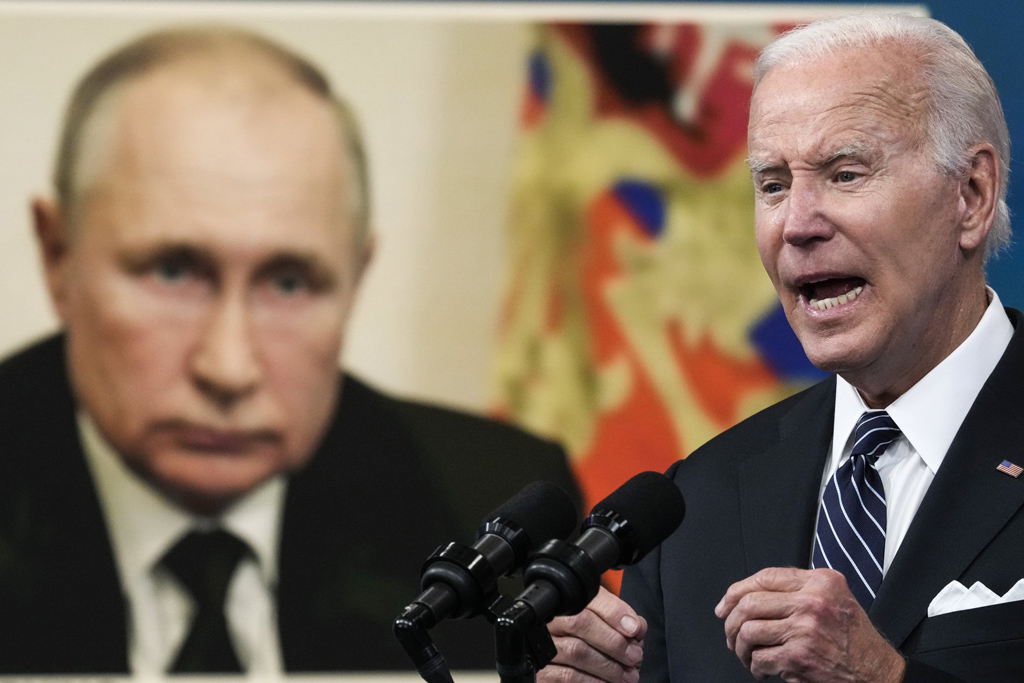
Putin-Biden spat and course of propaganda war
The Israeli-Palestinian conflict threatens to spread across the region and exacerbate great power competition. As United States military bases in Iraq and Syria come under drone attacks more and more frequently, a U.S. destroyer in the Red Sea shot down cruise missiles that the Houthi rebels in Yemen fired at Israel – harassing fire from Iran’s proxies.
Share
The Israeli-Palestinian conflict threatens to spread across the region and exacerbate great power competition. As United States military bases in Iraq and Syria come under drone attacks more and more frequently, a U.S. destroyer in the Red Sea shot down cruise missiles that the Houthi rebels in Yemen fired at Israel – harassing fire from Iran’s proxies.
Perhaps more important was a war of words between Russian President Vladimir Putin and U.S. President Joe Biden over the Israeli-Palestinian conflict. Unhappy with the recent deployment of U.S. aircraft carriers to the Eastern Mediterranean, Putin stated last week in China that “the Russian Aerospace Forces will begin patrols on a permanent basis over the Black Sea and the aircraft will be armed with Kinzhal systems.” He insisted that his statement was “not a threat.” Addressing the American people upon returning home from Israel, Biden, in turn, pledged to reinforce Israel’s defenses and talked about Putin and Hamas in the same sentence: “We cannot and will not let terrorists like Hamas and tyrants like Putin win. I refuse to let that happen.”
Maximalist goal
The Biden administration maintains that Israel’s adversaries must conclude that the country is more powerful than ever to prevent the spread of violence. Ironically, Israel’s plan to destroy Hamas represents a maximalist goal that itself renders the spread of violence inevitable. The country does not seem to have an exit strategy. Replacing Hamas with the Palestinian administration in Gaza remains far from applicable. If anything, Israel’s current policy encourages organizations that are far more violent than Hamas.
Furthermore, the Israeli plan to occupy part of Gaza and drive the Palestinians to Egypt and Jordan might elicit a strong response from other countries in the region. Indeed, Egyptian President Abdel-Fattah el-Sissi promptly said that the forced relocation of Palestinians from Gaza to the Sinai would be rejected by millions of Egyptians and transform the Egyptian peninsula into a base for counterattacks against Israel. Last week’s protests in Cairo, too, highlighted that people across the region are growing more and more frustrated over the massacres in Gaza. The Saudi Crown Prince Mohammed bin Salman’s call for the establishment of a Palestinian state in line with the 1967 borders was in line with the views of the Arab street. Another important point is that the current state of affairs creates a common ground between Türkiye, Egypt and Saudi Arabia – which pursued normalization quite recently. Insisting on the annihilation of Gaza shall further isolate Israel.
Tags »
Related Articles






